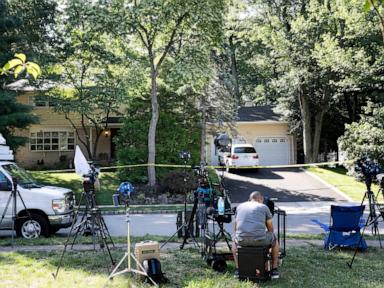The judiciary, a cornerstone of democratic governance, is increasingly under siege as federal judges across the United States face an unprecedented surge in threats, demanding urgent attention to their personal security and the integrity of the legal system.
This alarming trend gained grim notoriety with the tragic 2020 attack on District Judge Esther Salas’s New Jersey home, where a litigant posing as a deliveryman murdered her son, Daniel Anderl. Five years on, the shadow of such violence persists, with numerous judges now experiencing disturbing ‘pizza doxings’—unsolicited food deliveries made to their private residences, often eerily in Daniel Anderl’s name.
Among the recipients of these disquieting deliveries is District Judge John J. McConnell, Jr. of Rhode Island, who had previously challenged certain administrative decisions. His home has been targeted with these unwanted deliveries, and his courtroom has endured a barrage of menacing phone calls, including explicit threats of assassination, underscoring the growing boldness of those targeting the judiciary.
Judge McConnell’s revelation of a recorded threat during a recent judicial discussion highlighted the gravity of the situation. This public discourse, rare for judges who typically communicate only through rulings, underscored the collective concern within the federal judiciary regarding the escalating attacks and the urgent need for enhanced judicial security measures.
The phenomenon of doxing incidents extends beyond individual judges to their families, as exemplified by District Judge Robert S. Lasnik of Washington. After publicly commenting on attacks against judges, both his home and those of his adult children, residing in different cities, were subjected to these intrusive pizza deliveries, illustrating the insidious nature of these personal threats.
Since 2024, U.S. Marshals have documented over 100 cases of ‘pizza doxings’ targeting federal judges and their families, with the majority occurring this year. Judge Salas noted that this figure likely underestimates the problem, as state judges are also reporting similar incidents, which fall outside the Marshals’ purview, indicating a widespread assault on judicial independence.
The backdrop to this escalating crisis is a climate of heightened political rhetoric, particularly from former President Donald Trump. Trump has frequently and publicly criticized judges by name, labeling those who ruled against his agenda as ‘sick’ or ‘dangerous.’ His allies have often amplified this sentiment, contributing to an environment where court threats are perceived as increasingly normalized.
Despite widespread internal concern, many judges, including those appointed by both parties, are hesitant to publicly address these threats, fearing repercussions. This apprehension is not unfounded; Chief Justice John Roberts has acknowledged concerns, yet the Department of Justice recently filed a complaint against District Judge James E. Boasberg for comments he made expressing concerns about potential non-compliance with judicial orders, further complicating the issue of judicial independence.
In response to these pervasive court threats, measures are being implemented to bolster judicial security. Over five dozen judges who have ruled against the former president are now receiving enhanced online protection, including the removal of identifying information from public websites. Legislation like the Daniel Anderl law, passed in 2022, empowers judges to demand the takedown of personal data from internet sites, a critical step in safeguarding the judiciary.






Leave a Reply